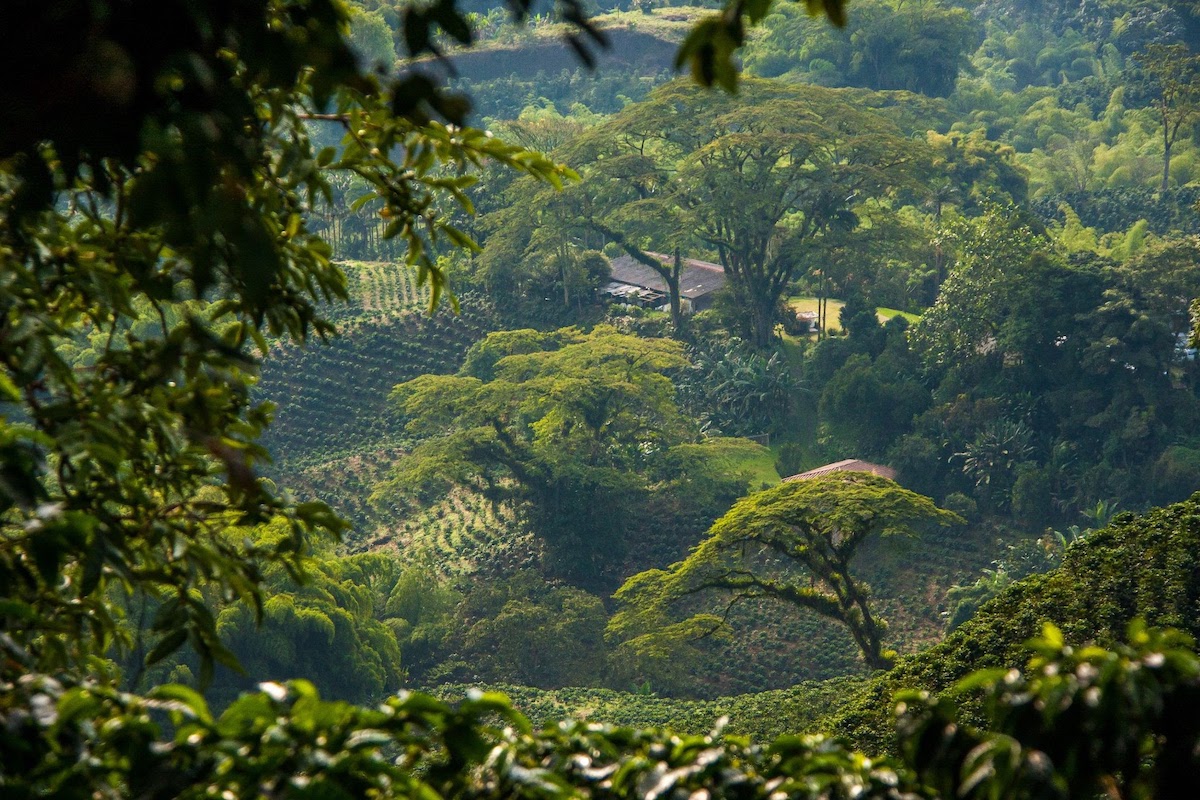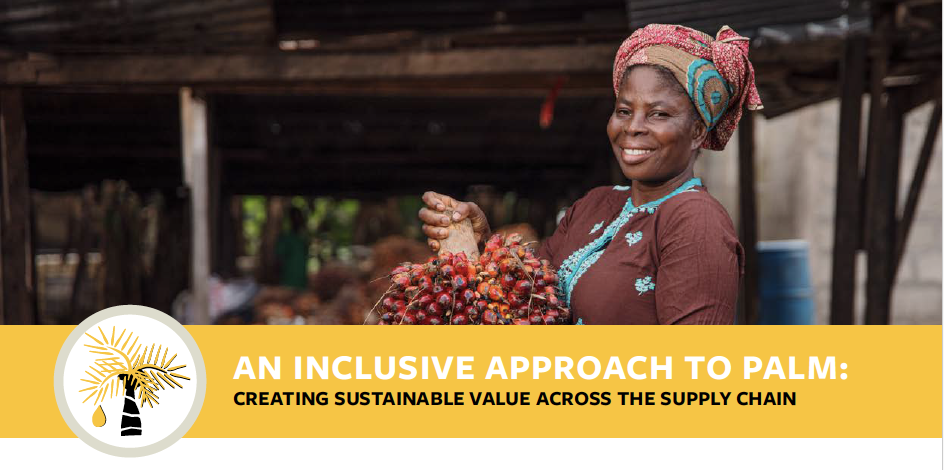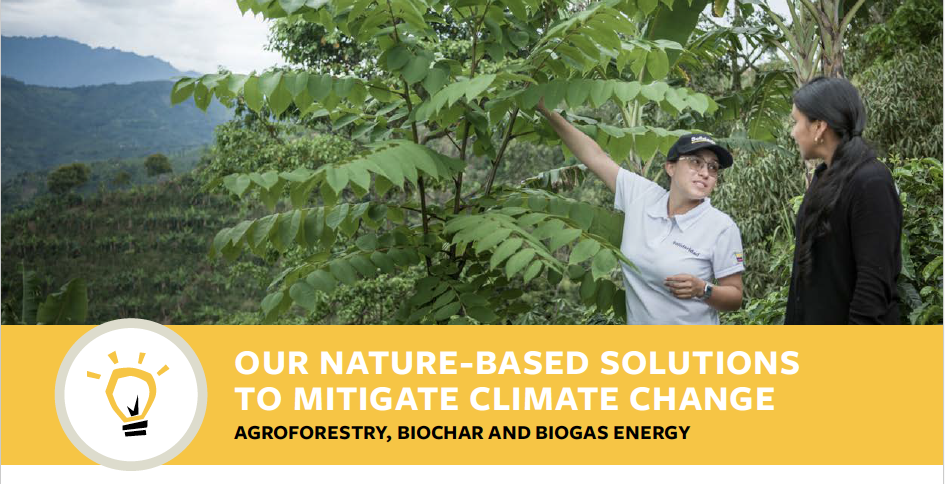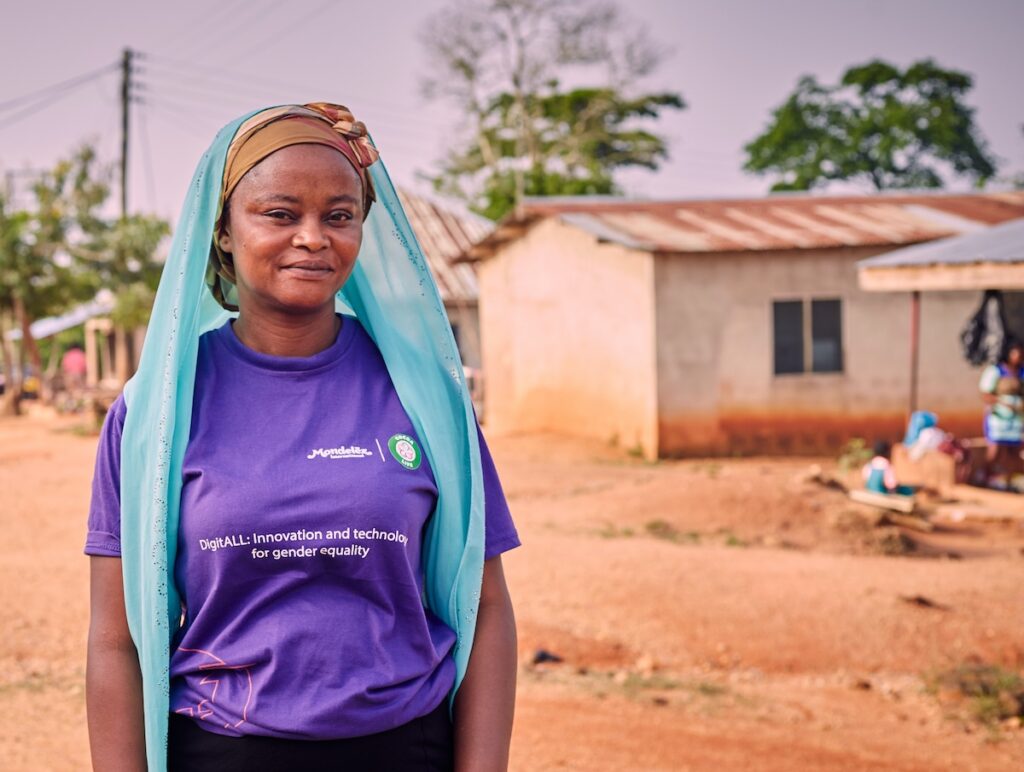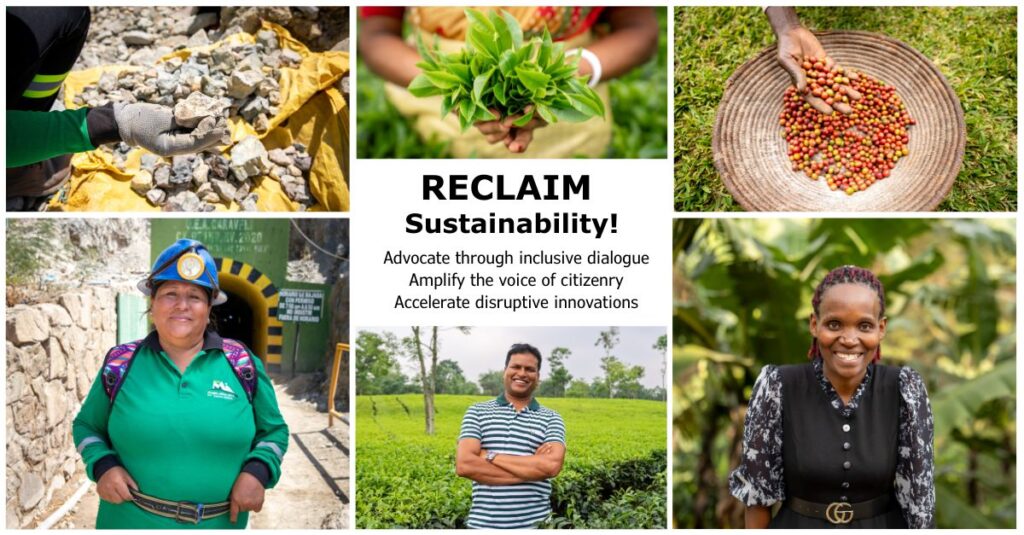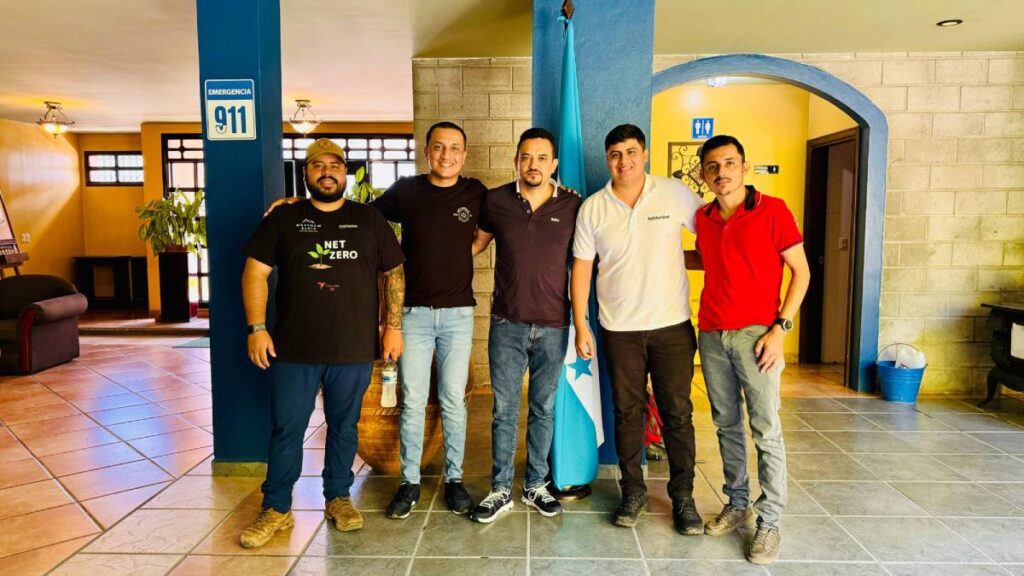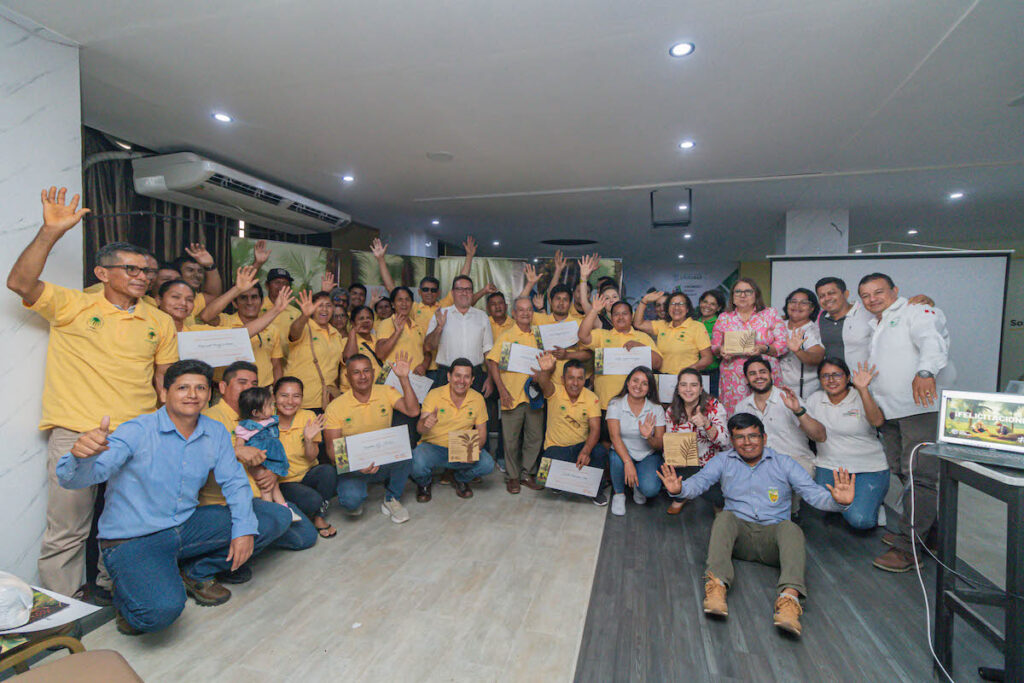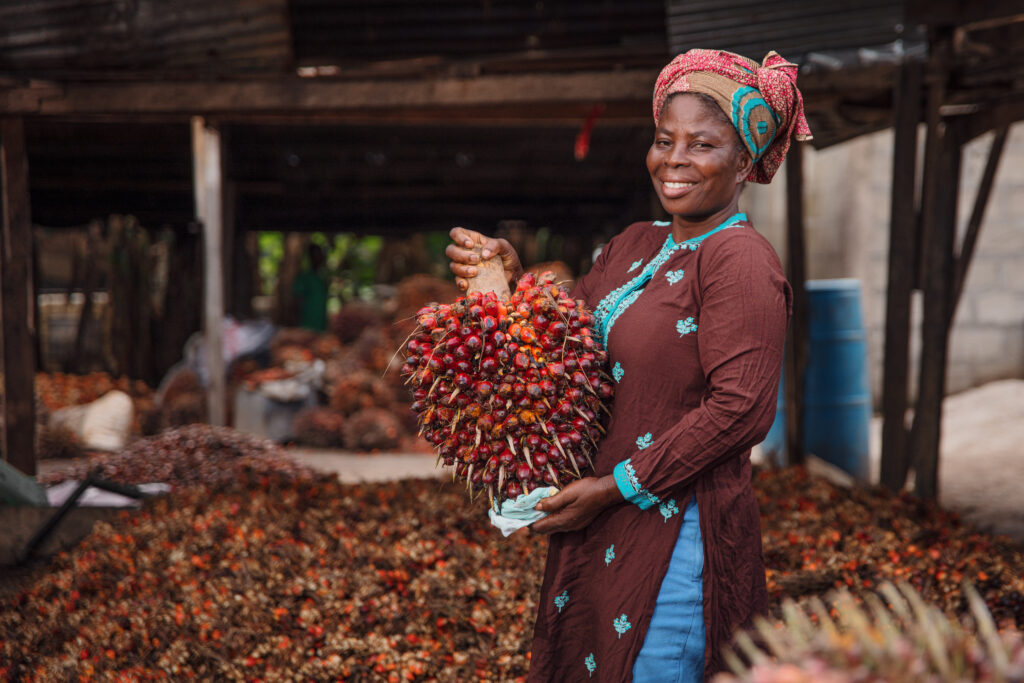Climate experts have pointed out that rising temperatures will reduce the area suitable for growing coffee up to 50 percent by 2050, bringing pressure to Andean and sub-Andean forests, in the search for new farming areas. Colombia’s annual production reaches approximately 14 million bags, making it the third largest producer globally. It provides 720,000 direct jobs, over 2.5 million people depend for their income on the crop.
The agreement recognizes the importance of the public-private alliances for a sustainable and inclusive economic growth, its aligned to the New York Declaration on Forests, the Paris Climate Agreement and the Sustainable Development Goals, and is framed in the deforestation-free supply chains agreements accordingly to Colombia’s international compromises such as the Tropical Forest Alliance (TFA).
By signing this agreement, the National Government completes one of its main goals in the fight against deforestation associated with agricultural production.
Carlos Eduaro Correa Escaf, Colombian Minister of Environment and Sustainable Development
The Colombian Government was joined in this groundbreaking initiative by the producers, represented by the Federación Nacional de Cafeteros, the coffee exporters, embodied by Asoexport, global coffee companies such as Nespresso and international organizations from the civil society such as Tropical Forest Alliance and Solidaridad. Germany, Switzerland, Norway, the Netherlands, and The United Kingdom, have endorsed the agreement as an effective contribution to Colombia’s NDCs.
“We are working for a more sustainable coffee, conservation and forest recovery are at the center of our sustainability strategy,” complemented Roberto Vélez Vallejo, General Manager of the Federación Nacional de Cafeteros.
The Coffee, Forest & Climate agreement has three main pillars. The first key objective focuses on climate adaptation through the establishment of climate smart and agroforestry production models that contribute to productivity, diminish supply volatility and promote the resilience of coffee growing communities in the face of climate change. The second key objective focuses on the conservation and restoration of forests, protected areas, and high biodiversity ecosystems within or near coffee production areas. The third key objective highlights Colombia’s commitment to climate change mitigation. Signatories will work together to reduce greenhouse gas emissions and further optimize the trade in ecosystem services provided by coffee farmers on over 1 million hectares.
“This is a great opportunity for companies to reduce supply volatility and to achieve net zero carbon commitments through offsetting and/or insetting” explains Joel Brounen, Solidaridad’s Country Manager in Colombia, adding: “the proof of concept is there to make coffee plantations carbon negative and more climate resilient. Coffee plantations with agroforestry systems become carbon sinks, and can bring much needed additional income for coffee farmers through the sales of carbon credits.”
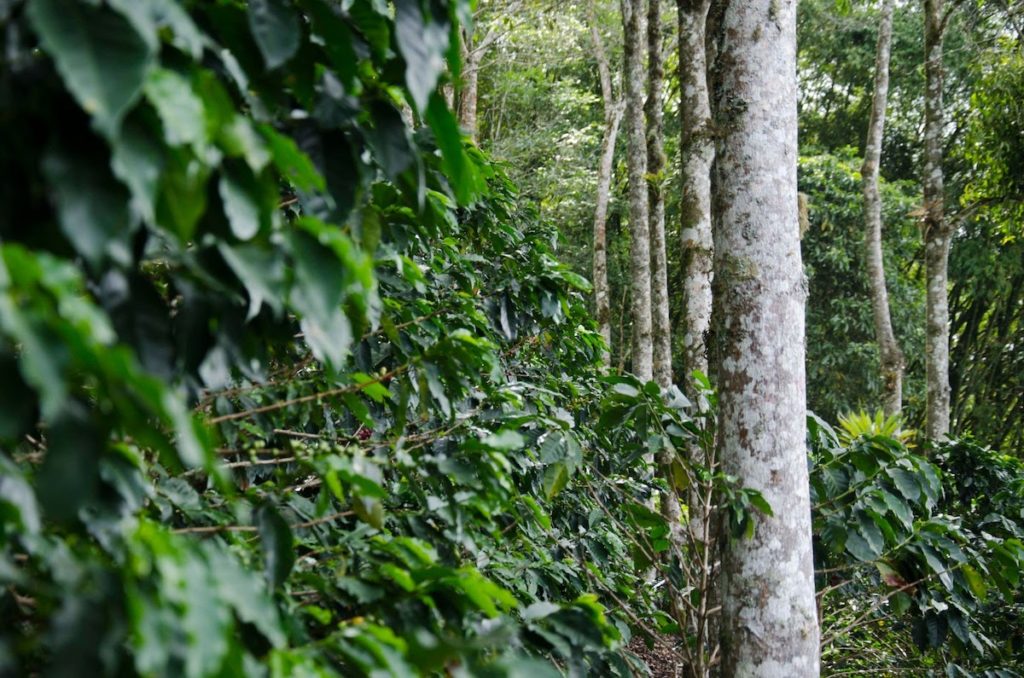
As the technical secretariat for the Coffee, Forest & Climate agreement, Solidaridad serves as the backbone organization that supports signatories with the implementation of mutually reinforcing activities, such as the exchange experiences and generate knowledge related to the management of trees within coffee production systems, the development of strategies that promote the reduction of deforestation in coffee growing areas, the implementation of practices related to the reduction of the carbon footprint and the adaptation of communities to climate change. It also facilitates the dialogue and ideation processes that allow participating organizations to develop effective implementation projects and plans that promote tree planting, sustainable forest management and the reduction of deforestation in coffee growing areas in conjunction with Tropical Forest Alliance. And, it promotes the structuring of financial mechanisms, instruments and tools to manage resources for the implementation of climate change strategies within the coffee sector.
The agreement is open for new members. Interested companies, organizations and/or entities can contact the technical secretariat (Solidaridad) or find more information on: www.acuerdocafebosqueyclima.com
Institutional contact
Joel Brounen
Country Manager Colombia – Solidaridad
joel.brounen@solidaridadnetwork.org
Press contact
Nancy Amado González
Communications Manager – Solidaridad
nancy.amado@solidaridadnetwork.org

